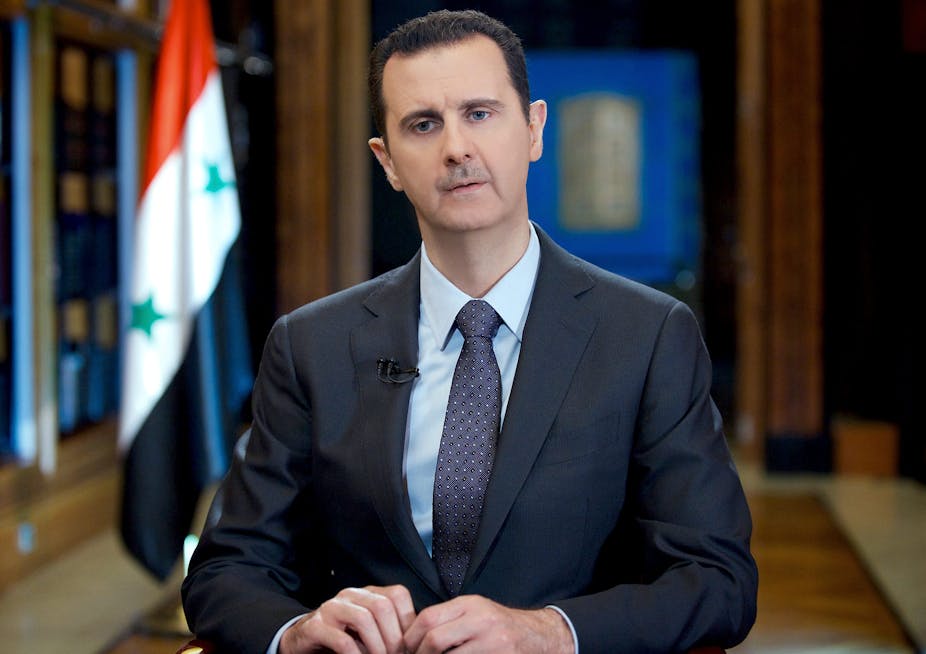Much is resting on the “Geneva 2” Syrian peace talks scheduled to take place in Switzerland next week. The talks come as the humanitarian crisis in the war-torn nation reaches catastrophic proportions, with an estimated 6.5 million internally displaced persons within Syria and a further 2.3 million refugees living in neighbouring countries.
In the lead-up to Christmas, snowstorms caused below-freezing temperatures, black-outs and fuel shortages across the region, exacerbating the humanitarian crisis and highlighting the appalling conditions that many Syrians are forced to live in. The peace talks have come not a minute too soon.
International leaders are pinning their hopes on the talks, which aim to pave the way for the formation of a transitional government. In November 2013, UN Secretary-General Ban Ki-moon declared that:
The Geneva conference is the vehicle for a peaceful transition that fulfils the legitimate aspirations of all the Syrian people for freedom and dignity.
Earlier this month, French foreign minister Laurent Fabius said that:
There is no solution to the Syrian tragedy apart from a political solution. And there is no possibility to achieve a political solution if Geneva 2 does not take place.
All this sounds great on paper, but is there any chance that the talks will be successful? In short, no.
The meeting is already fraught with problems. On Thursday, just five days before the conference kicks off, the National Coalition for Syrian Revolutionary and Opposition Forces (SNC) – the main opposition group invited – declined its invitation. The SNC is an umbrella group of some Syrian opposition groups, which has been recognised by the UK, EU, France and Australia as the legitimate representative of the Syrian people.
However, the likelihood of the SNC making it to the talks in one piece was looking increasingly grim. Nearly one-quarter of its members threatened to resign earlier this month over the re-election of SNC leader Ahmad al-Jarba. The comparatively more controversial Geneva talks could have brought the fractious coalition to breaking point.
Meanwhile, the Assad regime is sending a delegation to Geneva, but Syrian information minister Omran al-Zohbi has made it clear that there will be no discussion of a post-war Syria without president Bashar al-Assad. As al-Zohbi said late last year:
If anyone thinks we are going to Geneva 2 to hand the keys to Damascus over [to the opposition], then he might as well not go.
This would have represented a major stumbling block for the SNC. Just last week, the SNC announced that “Assad has no future in Syria”. With both parties digging their heels in on this front, it would have taken a lot more than Swiss chocolate and mountain vistas to broker an agreement.
But while the SNC’s withdrawal from the conference may seem catastrophic, in reality the talks were doomed from the outset. The SNC was the only major opposition group invited to the conference, which is problematic given that it is increasingly irrelevant on the ground.
The actual fighting within Syria is now dominated by the Syrian Islamic Front, which was not invited to the talks (nor would it probably have attended). It would seem futile to hold discussions about a ceasefire without including the warring parties.
Even if Assad and the SNC had come to some kind of agreement, it would be impossible to implement. Many of the groups on the ground have rejected the authority of the SNC and are unlikely to recognise any agreement.

However, while Geneva 2 is already dead in the water, change might be under way in the wider conflict. The SNC met with the Syrian Islamic Front earlier in January, representing a step towards dialogue between the disparate opposition movements.
In a second important development this year, opposition battalions within Syria turned against the radical al-Qaeda-linked groups that control a number of areas and small cities. These groups, such as the Islamic State in Iraq and al-Sham (ISIS), have been accused of creating mini police states within Syria, and have caused considerable pessimism about prospects for peace.
Very few international observers (and few Syrians) would be sad to see the back of them.
Although it is hard to envisage a successful peace process in Syria in the near future, the backlash against the most radical elements of the opposition means that the opposition might be taking important steps towards defining itself. That is a crucial ingredient for a comprehensive peace.
However, unification is still a long way off, meaning that observers would do better to focus on supporting relief efforts on the ground than placing bets on poorly conceived peace talks. It may be a long wait before the international community realises that it has put all of its eggs in the wrong basket with the SNC.
This piece was updated on January 17 to reflect overnight developments.

